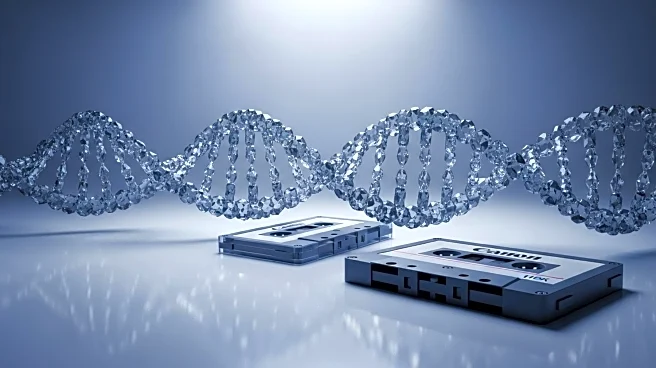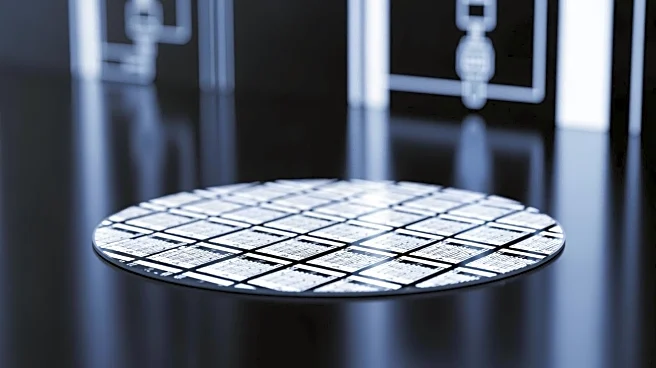What is the story about?
What's Happening?
Researchers at the Southern University of Science and Technology in Guangdong, China, have developed a novel storage medium that combines DNA with the design of a cassette tape. This innovative DNA cassette can store up to 36 petabytes of data, equivalent to 36,000 terabyte hard drives. The team, led by Xingyu Jiang, printed synthetic DNA molecules onto a plastic tape, allowing the sequence of DNA bases (A, T, C, G) to represent digital information similar to binary code in computers. The DNA cassette can store various types of digital files, including text, images, audio, and video. To address previous challenges in accessing data stored in DNA, the researchers incorporated barcodes on the tape to facilitate data retrieval, akin to locating a book in a library. Additionally, the tape is coated with 'crystal armour' made of zeolitic imidazolate to prevent DNA degradation, ensuring data preservation for centuries.
Why It's Important?
The development of DNA-based storage solutions represents a significant advancement in data storage technology, offering a potential solution to the growing demand for high-capacity storage. As digital data continues to expand exponentially, traditional storage methods face limitations in capacity and longevity. DNA storage offers a compact and durable alternative, capable of preserving vast amounts of data without deterioration over time. This innovation could revolutionize industries reliant on large-scale data storage, such as cloud computing, scientific research, and media archiving. The ability to store data in DNA also opens new possibilities for secure and long-term data preservation, addressing concerns about data loss and obsolescence in current storage technologies.
What's Next?
While the DNA cassette tape is a promising development, further research and testing are necessary to refine the technology and make it commercially viable. The next steps may involve improving the efficiency of data retrieval processes and reducing production costs to facilitate widespread adoption. Researchers might also explore collaborations with technology companies to integrate DNA storage solutions into existing data infrastructure. As the technology matures, it could attract interest from industries seeking sustainable and scalable storage solutions, potentially leading to new business models and applications. Stakeholders in the tech industry, including data centers and cloud service providers, may closely monitor advancements in DNA storage for potential integration into their systems.
Beyond the Headlines
The use of DNA for data storage raises intriguing ethical and legal questions regarding data privacy and security. As DNA storage becomes more prevalent, regulations may need to evolve to address concerns about unauthorized access and manipulation of genetic information. Additionally, the cultural implications of storing data in a biological medium could influence public perception and acceptance of the technology. Long-term shifts in data storage practices may also impact environmental sustainability, as DNA storage offers a more eco-friendly alternative to energy-intensive data centers. These considerations highlight the need for interdisciplinary dialogue and policy development to ensure responsible and equitable use of DNA storage technology.















